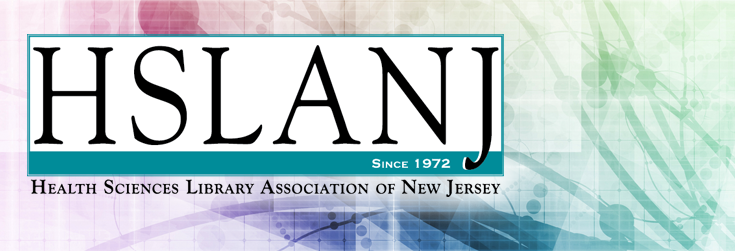Interlibrary Loan Code:
New Jersey Health Sciences Library Network
Please click here to download a PDF of this document.
INTRODUCTION
This code is a voluntary agreement adopted by the New Jersey Health Sciences Library Network (NJHSN) to govern interlibrary lending among member libraries. Although correlated with the ALA Interlibrary Loan Code (2008) (http://www.ala.org/rusa/resources/guidelines/interlibraryloancode), this code is intended to promote a broader and more comprehensive interlibrary loan (ILL) policy. This code is based on the belief that the lending among health sciences libraries, for the use of health care personnel, is in the public interest. However, liberal interlibrary lending is not intended to be a substitute for the development of adequate collections based on the needs of each participating institution’s library.
THE CODE
I. Definitions
Interlibrary loans are transactions in which materials are made available by one library to another.
Interlibrary loan includes the provision of copies as substitutes for loans of original materials.
II. Purpose
The goal of the NJHSN is to maximize the free resources for health sciences libraries in New Jersey.
The member libraries of NJHSN regard interlibrary borrowing and lending as essential to library service.
III. Eligibility for Membership
Must be an Institutional Member of HSLANJ.
HSLANJ dues must be paid in full by April or borrowing privileges will be suspended.
Must have at an annual fill rate of at least 50% as reported by MAR Network Coordinator.
Must have a journal collection consisting of at least 25 current titles without licensing restrictions for interlibrary loan purposes. These can be print or electronic.
Must have library’s serial holdings in SERHOLD.
SERHOLD records must be updated at least annually.
Must review DOCLINE Routing Tables and Institution Record at least annually.
IV. Responsibilities of Lending Libraries
Lending libraries will practice as liberal and unrestrictive a policy as possible with interlibrary loans, giving due consideration to the interests of their primary clientele and their institutional requirements.
Lending Libraries are responsible for temporarily deactivating their Docline accounts when the Library will be closed for one or more business days. This is for a temporary deactivation only.
Libraries may not remain in this status for longer than three months.
If a lending library cannot fill a request they will note that on Docline within 24 hours of receipt.
Lending libraries will fill requests as quickly as possible. If the request cannot be filled within two working days, it must be referred.
Rush and Urgent Patient Care requests are referred to as Special Handling in Docline reflecting their need for a separate work flow from normal ILL requests. Libraries will note if they offer this service on their DOCLINE record.
Rush requests must be filled by end of business the day they are picked up.
Urgent Patient Care requests must be filled within 2 hours of receipt.
Lending libraries are encouraged to use electronic delivery whenever possible.
V. Responsibilities of Borrowing Libraries
Borrowing libraries recognize that interlibrary lending does not relieve any library of the responsibility for developing its own collection. Each library will provide for the normal study and research needs of its users.
Borrowing libraries have the responsibility of keeping sufficient records to satisfy Federal copyright regulations.
VI. Scope
Any type of library material for the purpose of study, instruction, information or research may be requested on loan or as a photocopy from another library, adhering to copyright laws and CONTU guidelines.
The lending library has the privilege of deciding in each case whether a particular item will or will not be provided, and whether the original or a copy should be sent.
Under the provisions of this code, borrowing libraries will not ordinarily request:
- Duplicates of titles already owned
- Materials for class or other group use
- Basic reference materials
VII. Expenses
There will be no charges for interlibrary loans among NJHSN members; all loans are filled on the basis of reciprocity.
In the interests of efficiency, the lending library will agree to assume nominal costs for photocopying, fax and first class postage for documents, books or audiovisuals.
VIII. Conditions of Loans
The borrowing library will honor any limitations on use imposed by the lending library.
Unless specifically forbidden by the lending library, it is assumed copying is permitted, provided it is in accordance with the copyright law and institutional licenses, and that no damage to the original material will result.
The borrowing library is responsible for returning loans promptly and in good condition.
The safety of borrowed materials is the responsibility of the borrowing library. The borrowing library will meet all costs of repair or replacement in accordance with the preferences of the lending library.
Libraries will not lend directly to an individual on an interlibrary loan basis, except by mutual agreement.
A. Placement of Requests
Borrowing libraries will keep their routing tables on Docline current.
Care should be taken to avoid concentrating requests on a few libraries. Should a lending library receive more than two requests per day from a single borrowing library, all requests above two may be filled or referred at the lender’s discretion.
Requests will normally be placed on Docline. Urgent requests may be made by fax or telephone followed by a confirming request on Docline.
The HSLANJ discussion list is not the appropriate place to request articles. ILL requests on the discussion list should be confined to emergencies or to titles unavailable through regular interlibrary loan networks.
B. Form of Request
All NJHSN members will be Docline participants.
Materials requested must be described as completely and accurately as possible, following accepted bibliographic practice.
Every effort should be made to verify requested material.
C. Duration of Loans
Unless otherwise specified by the lending library, the duration of loan is normally calculated to mean the period of time the item may remain with the borrowing library, disregarding the time spent in transit.
The borrowing library should ask for renewal only in unusual circumstances.
Material on loan is subject to recall at any time and the borrowing library should comply immediately.
XII. Paying Clients
Libraries that have paying clients, whether via Loansome Doc or other means, should not use NJHSN libraries when requesting articles. The intention of this network is to provide free reciprocal interlibrary loans for the staff of the borrowing library’s institution. It is not to serve as a source of revenue for participating libraries.
XIII. Compliance/Violations
Continued disregard of the provisions of this code shall be sufficient reason for suspension of borrowing privileges.
Borrowing within NJHSN is a reciprocal agreement. Lending libraries may use discretion in rejecting requests from libraries that are not meeting the NJHSN standards.
Under normal operating circumstances, it sometimes becomes impossible for libraries to fill interlibrary loans for a fixed period of time due to closing, illness, vacation, moving, etc. The maximum allowable time for a library to stay in this category is three months from the time the initial notice is sent out suspending interlibrary loan.
Original: 1972
Revised: 1986, 2000, 2006, 2015, 2018.




